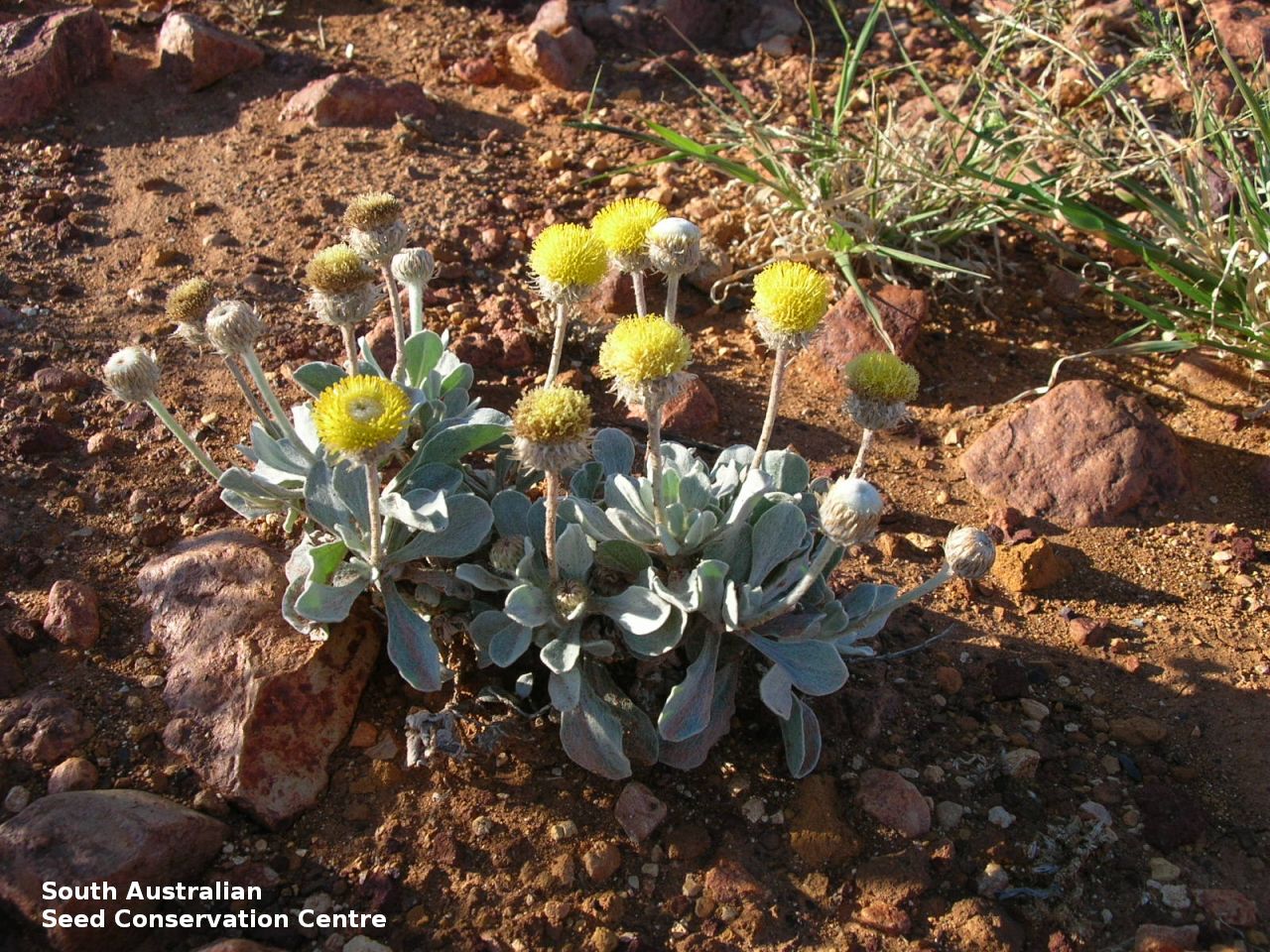
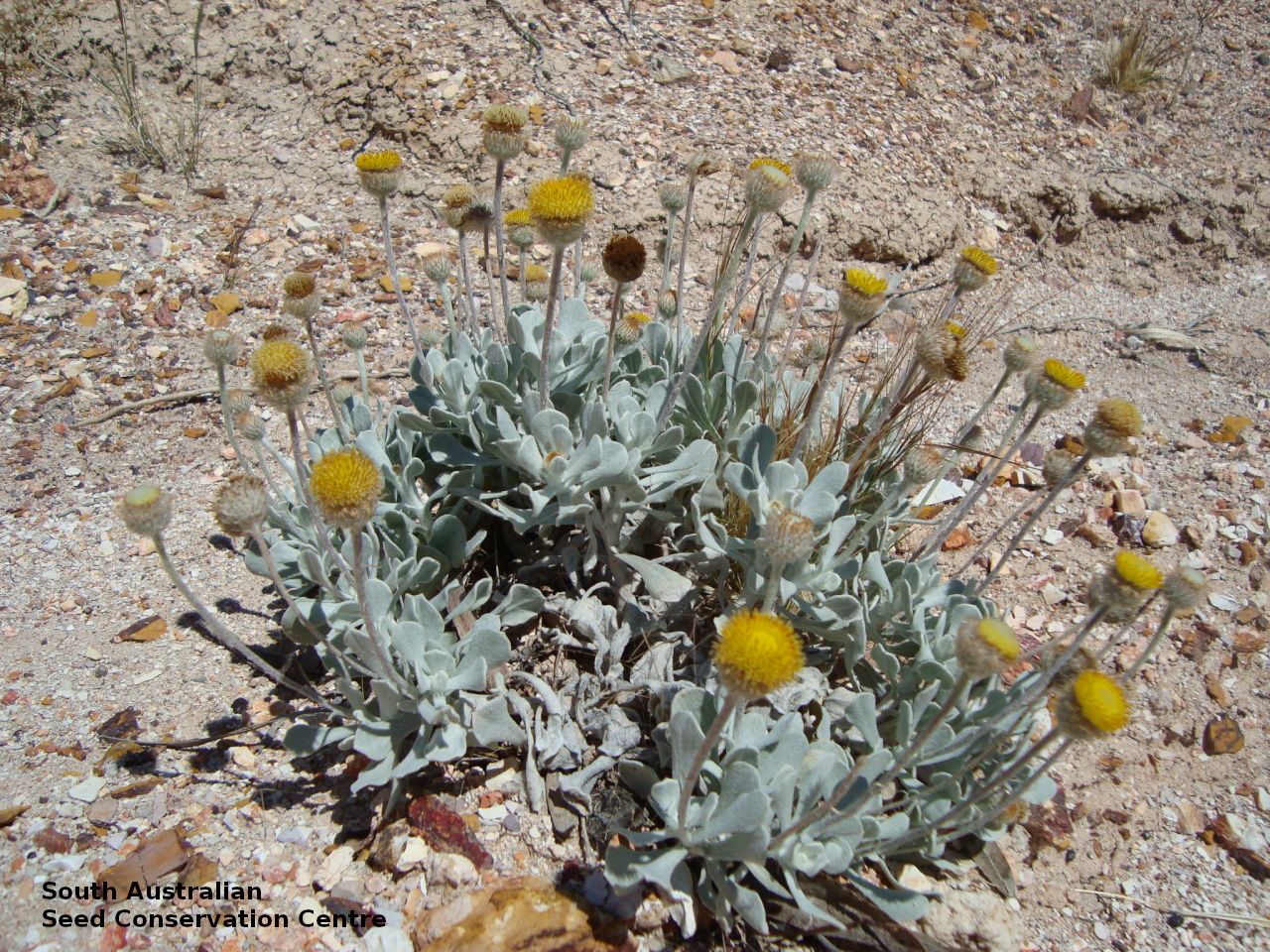
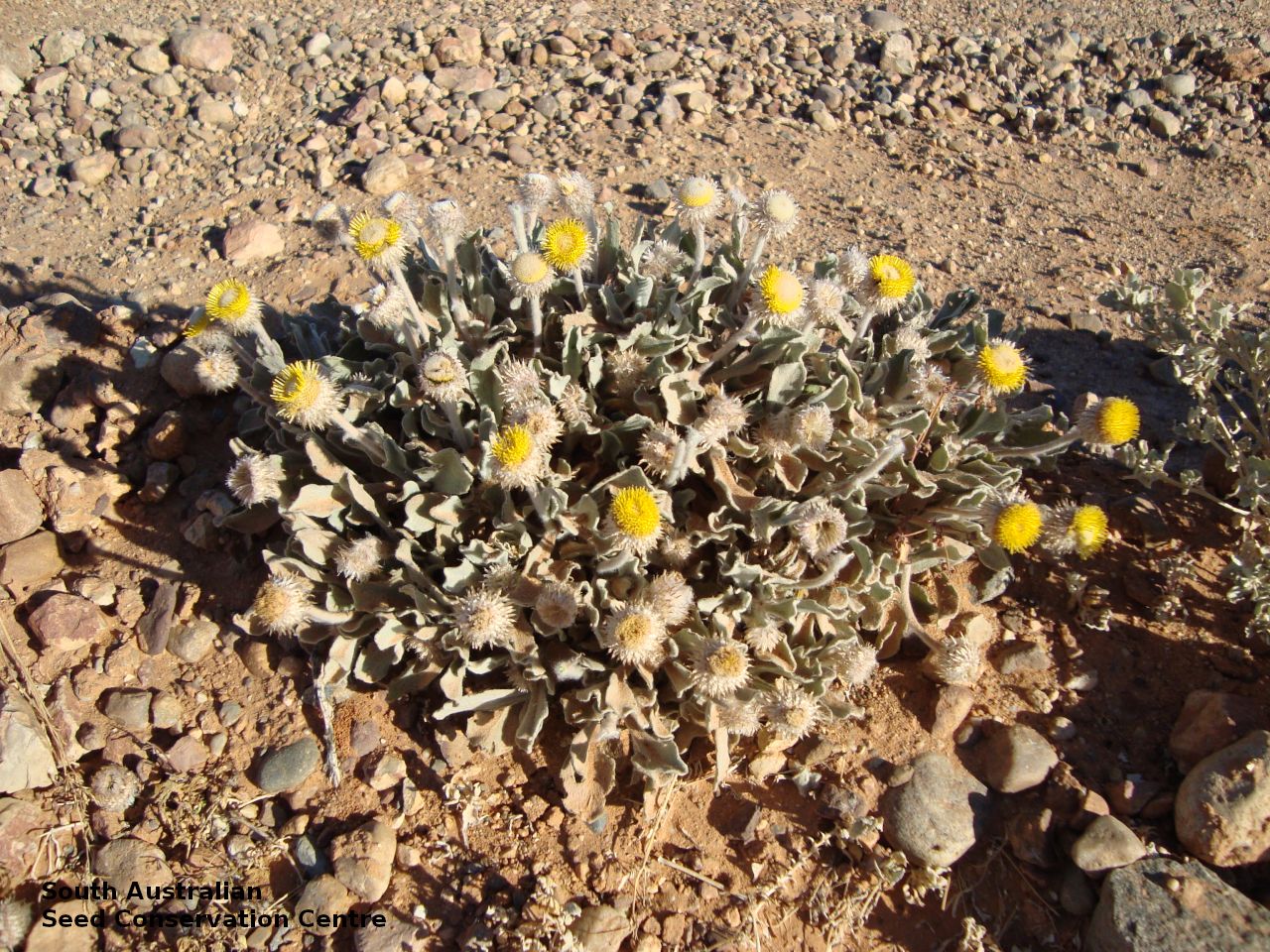

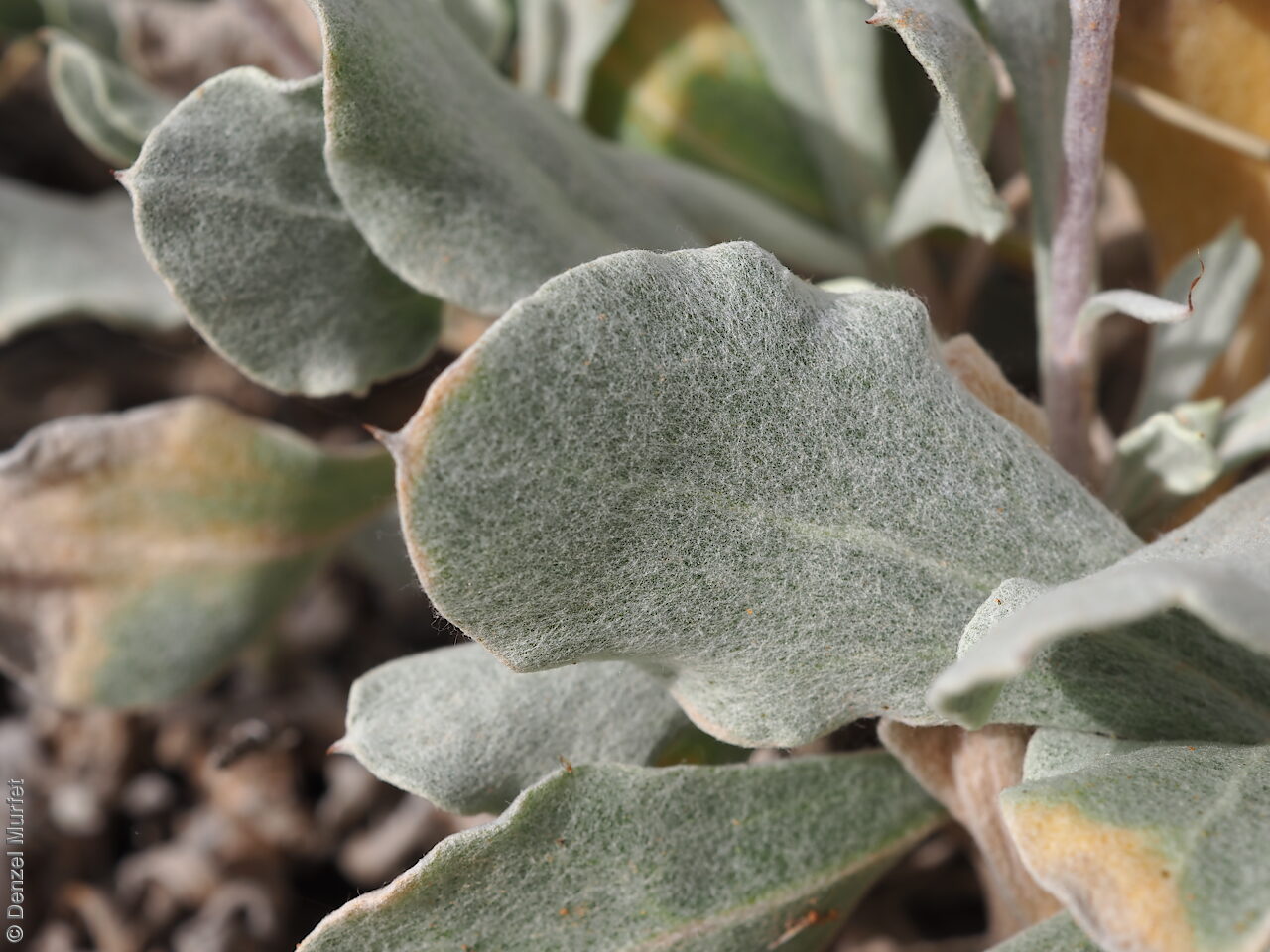

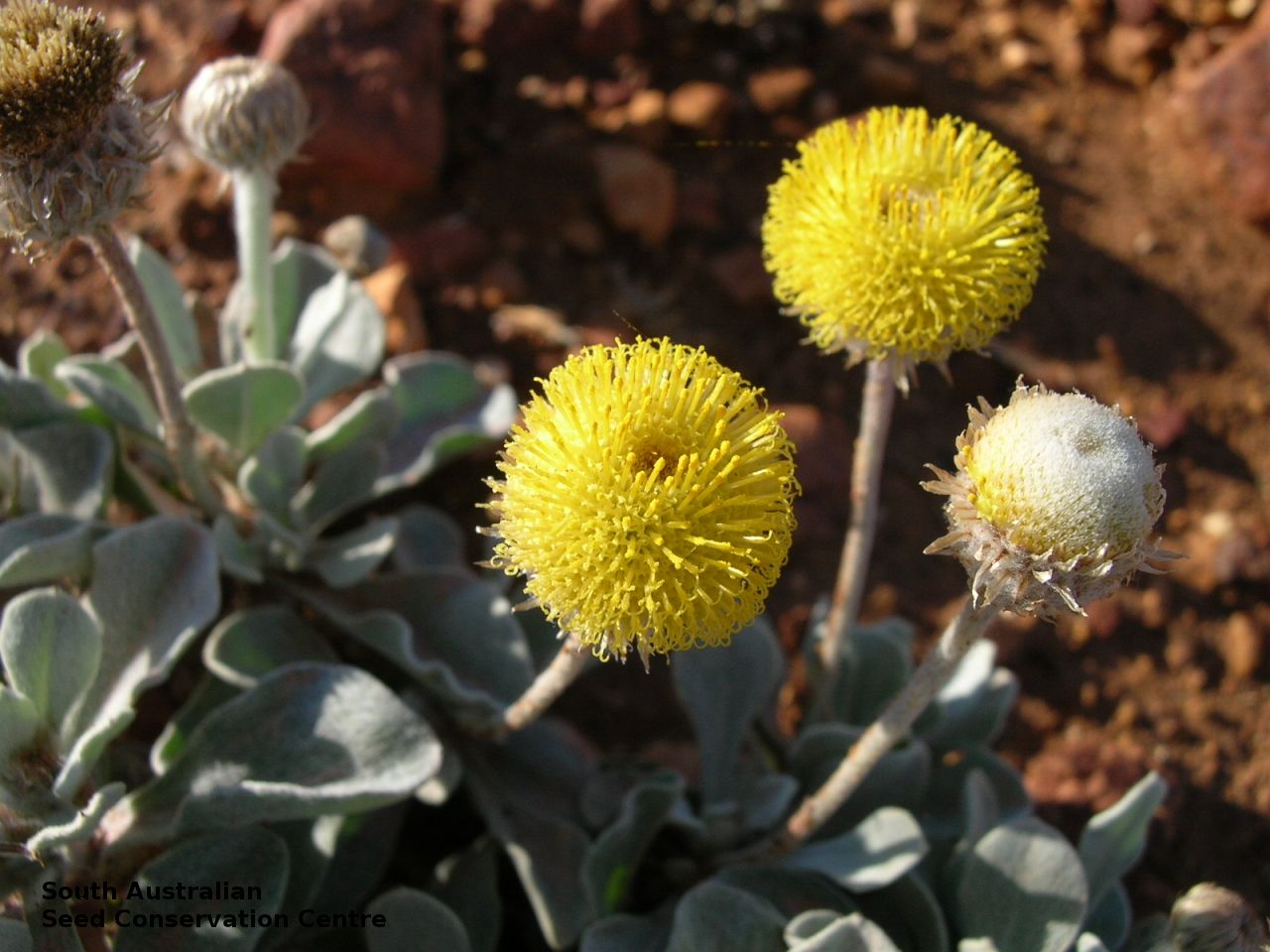
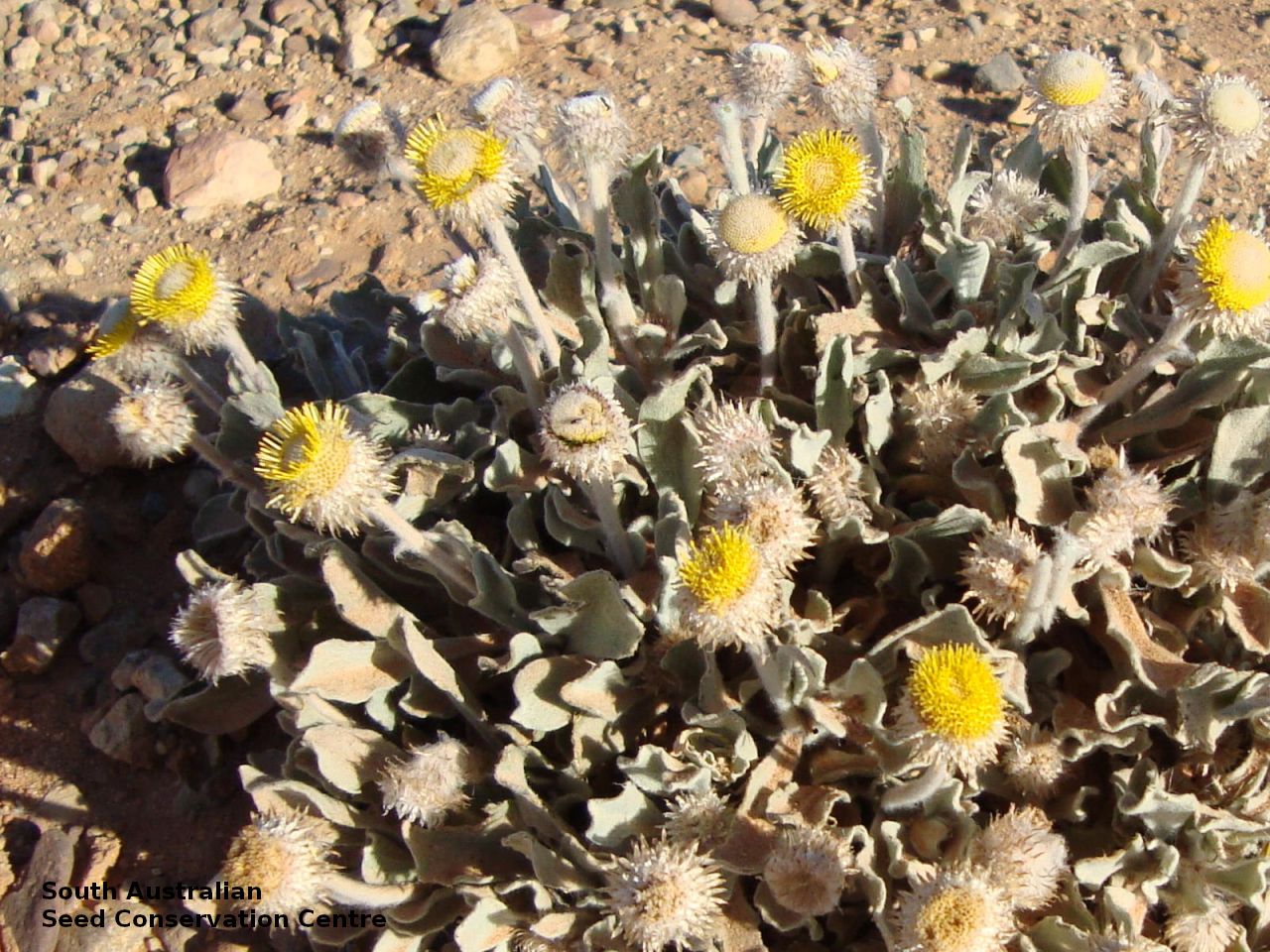
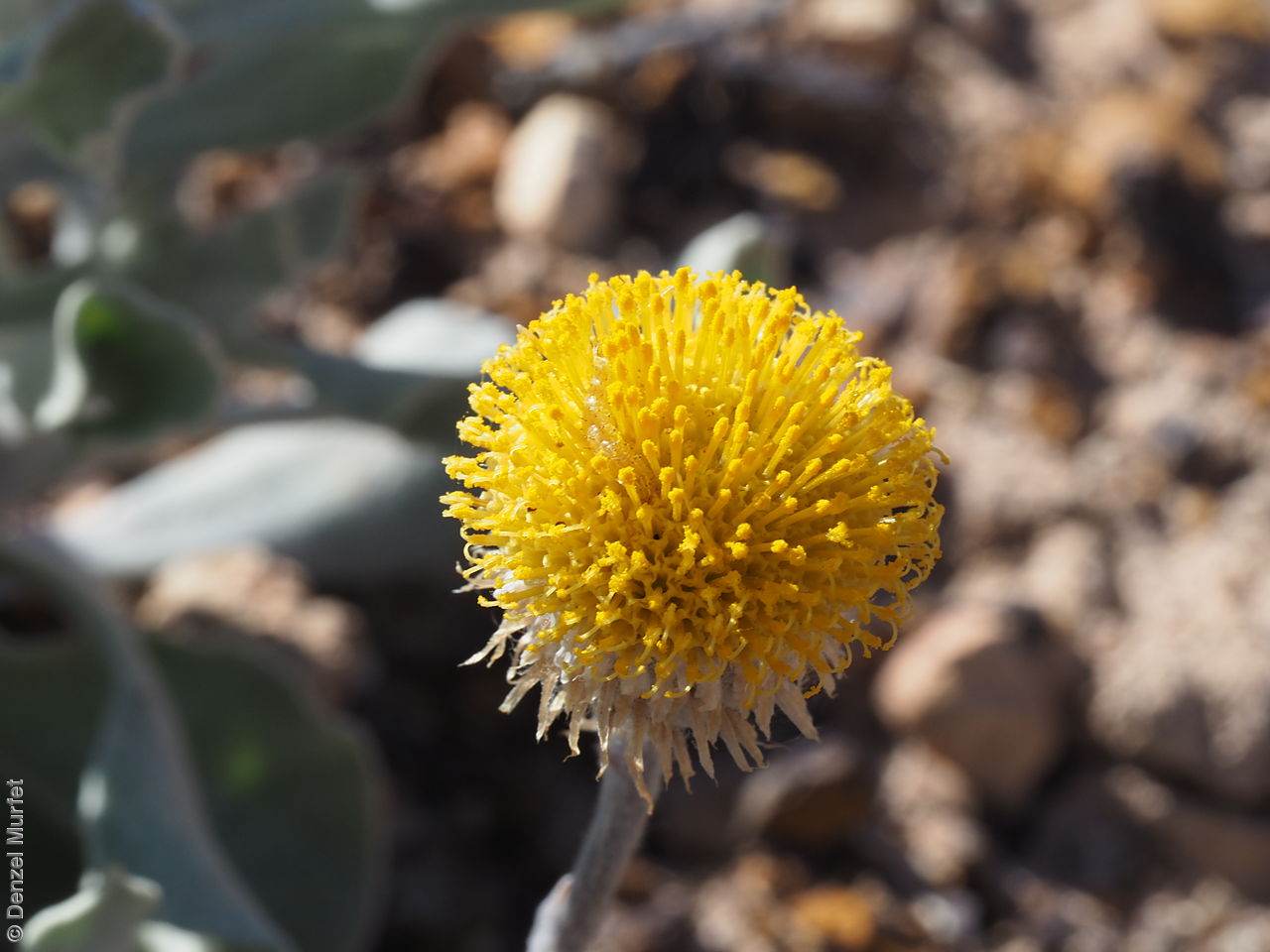

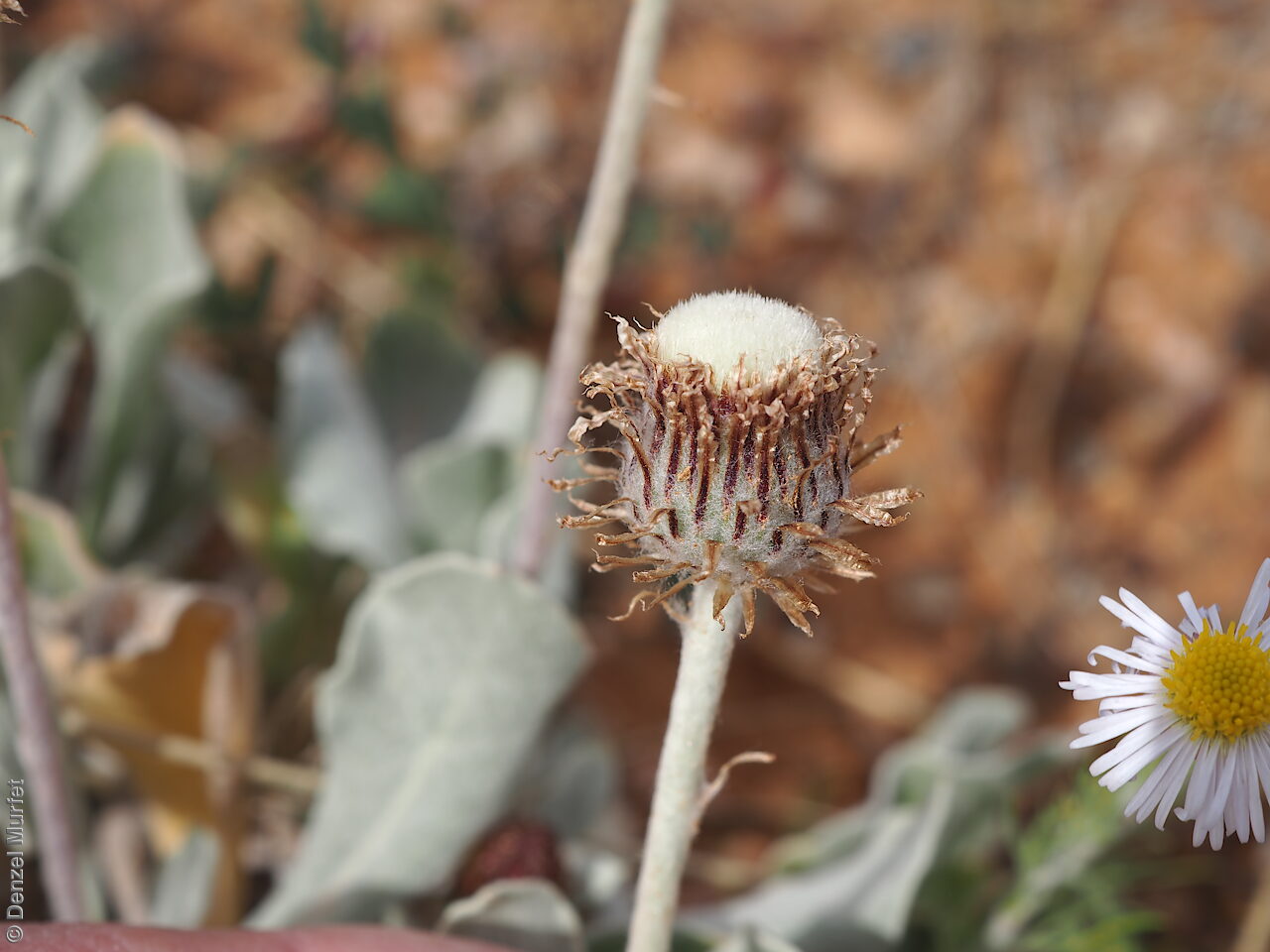
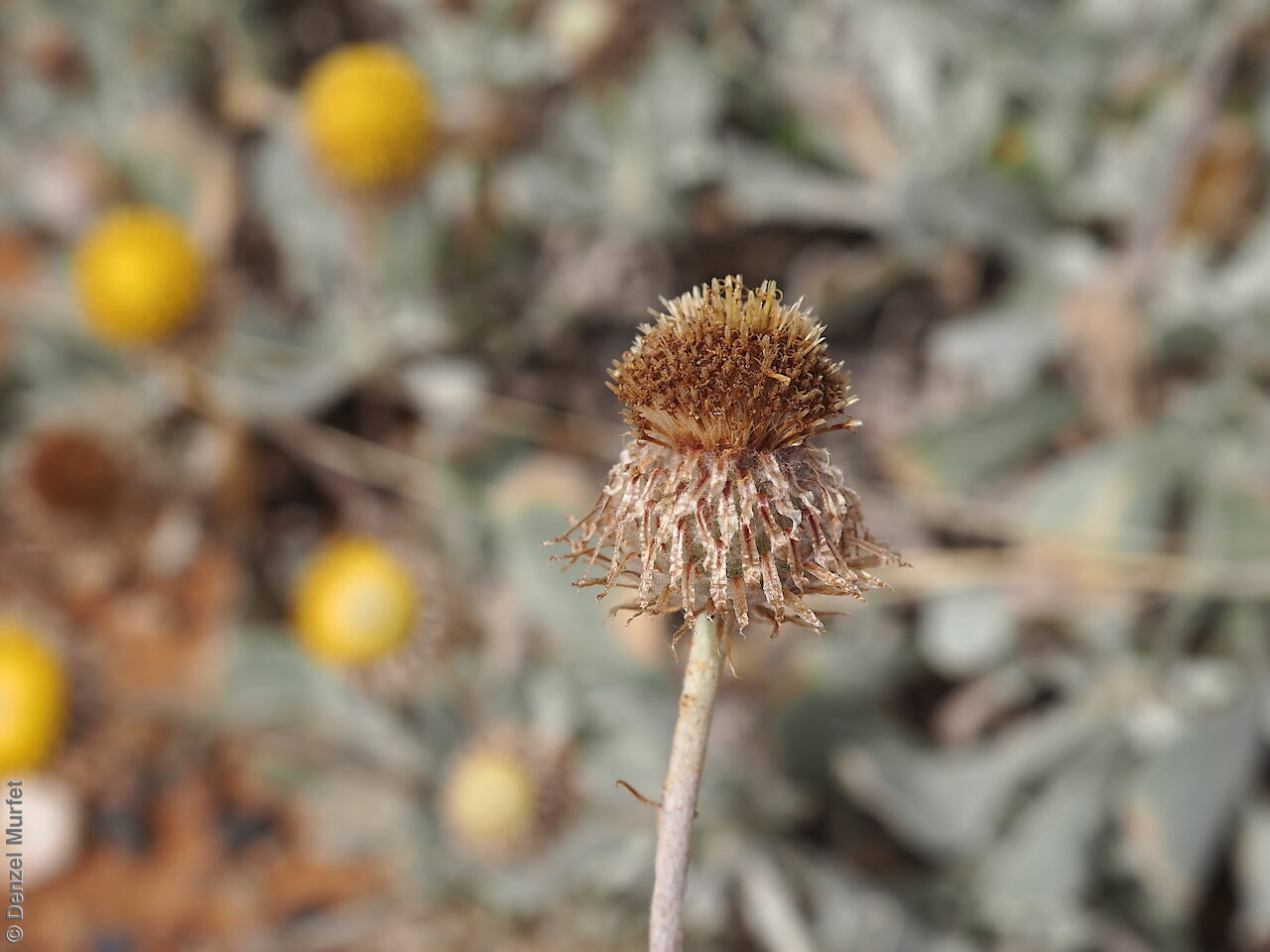
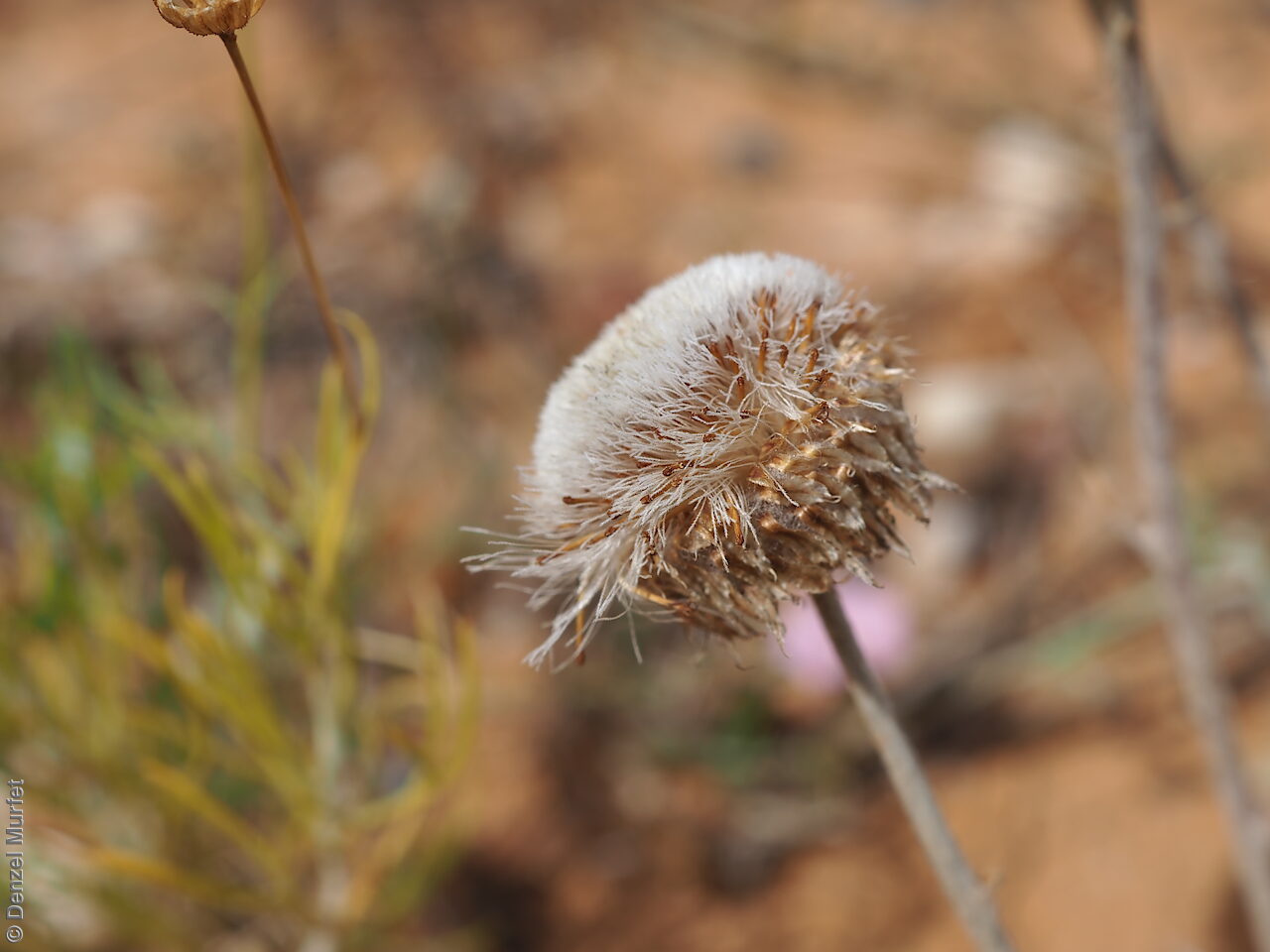
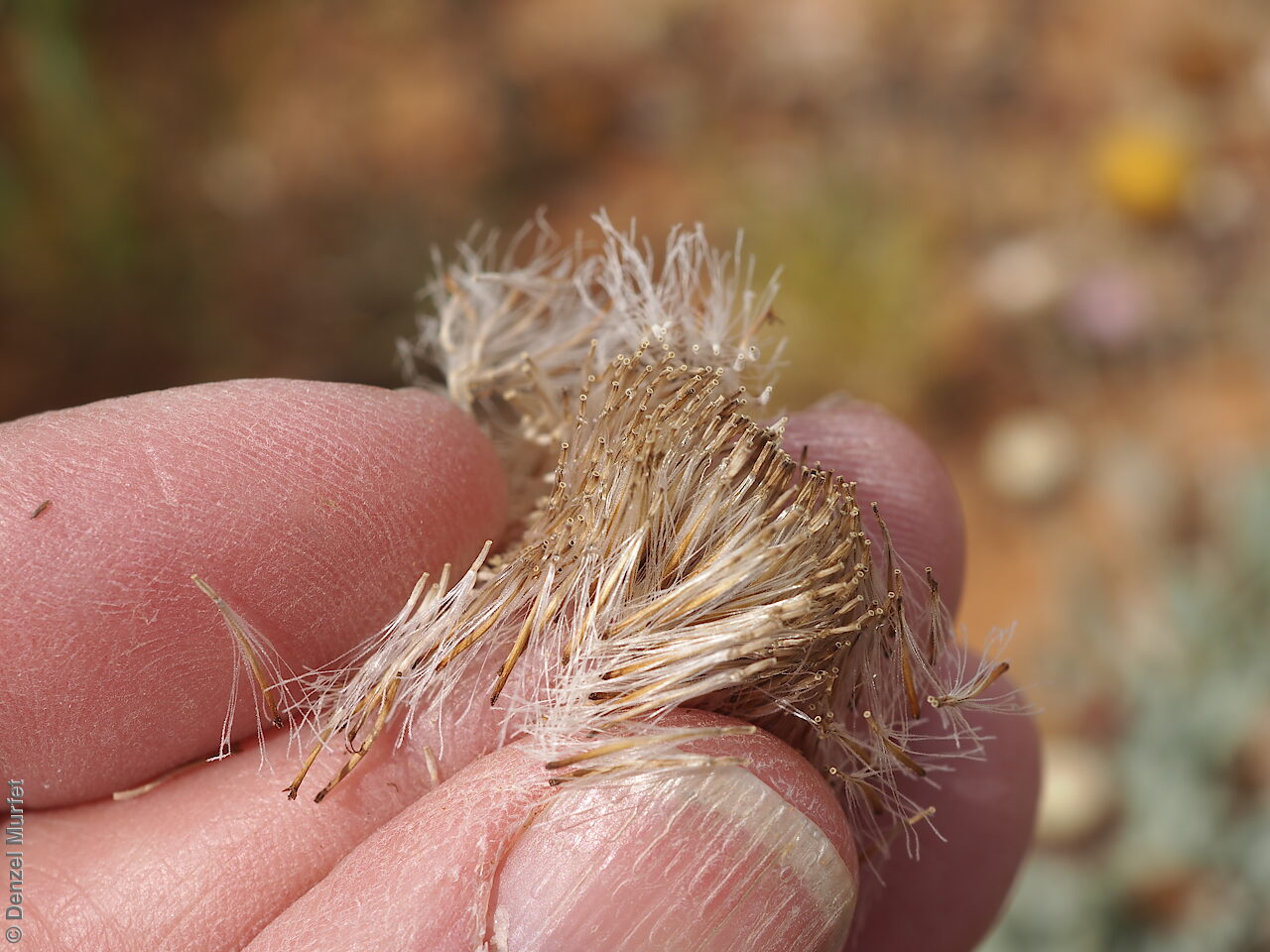
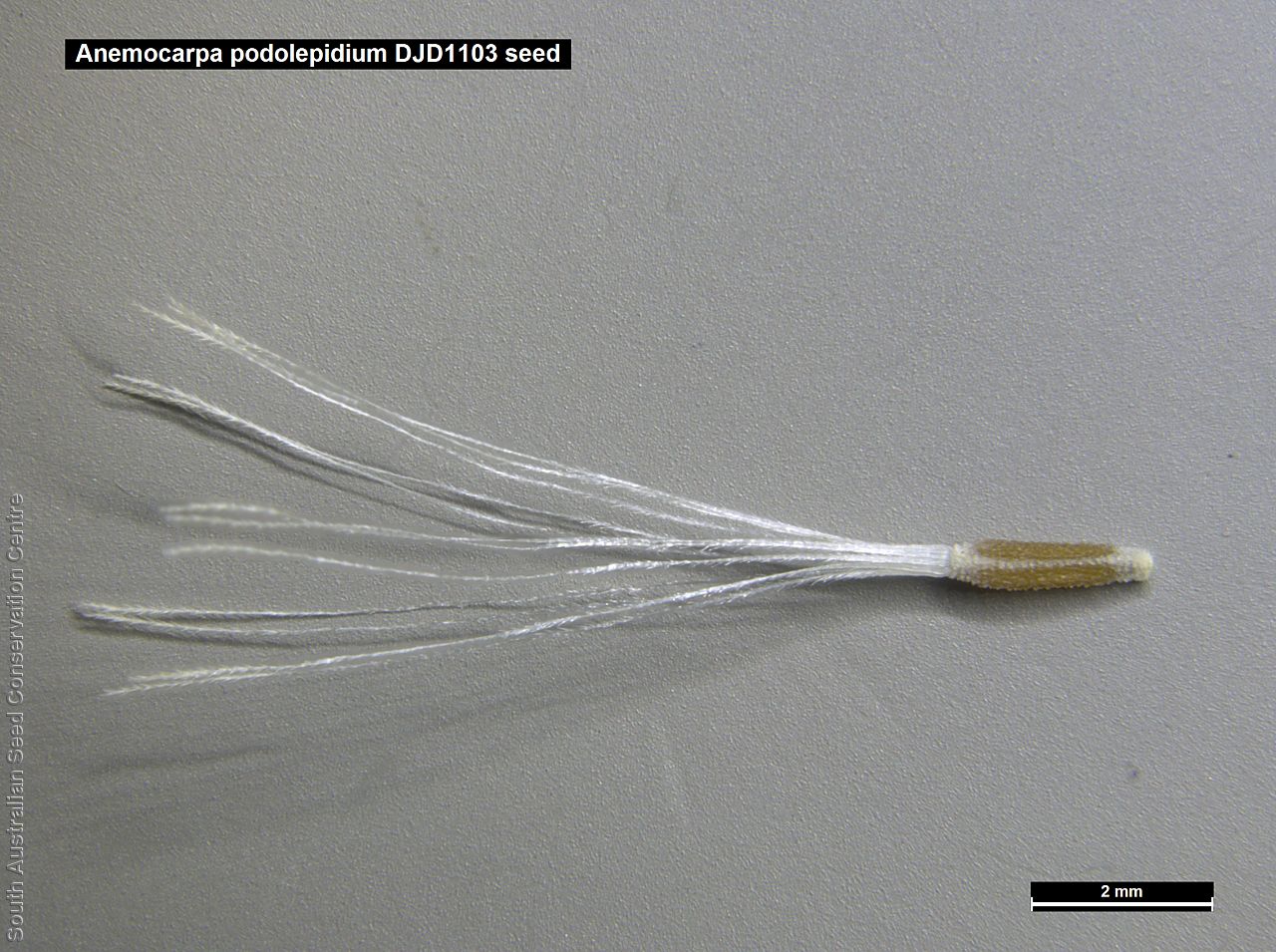



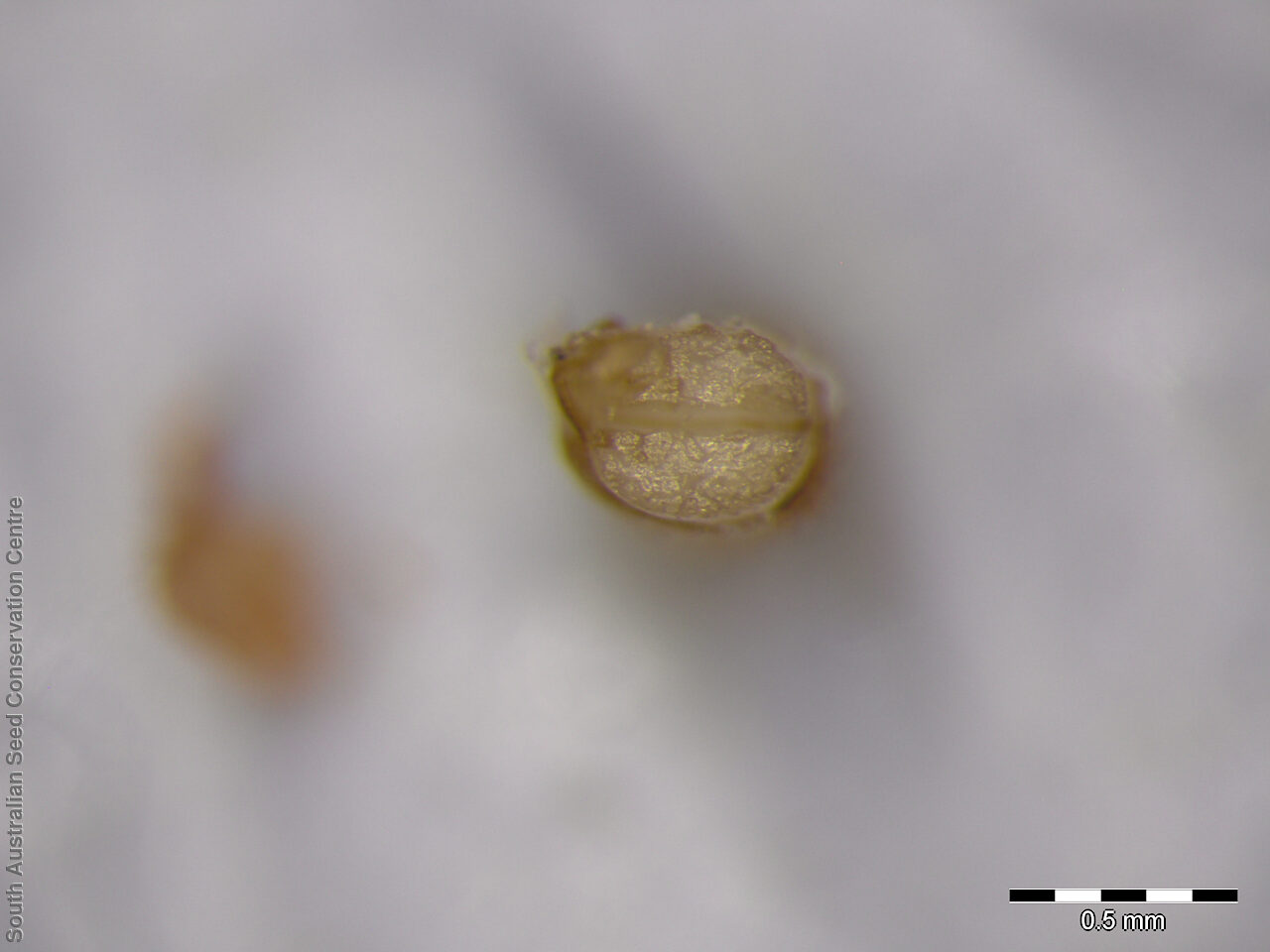

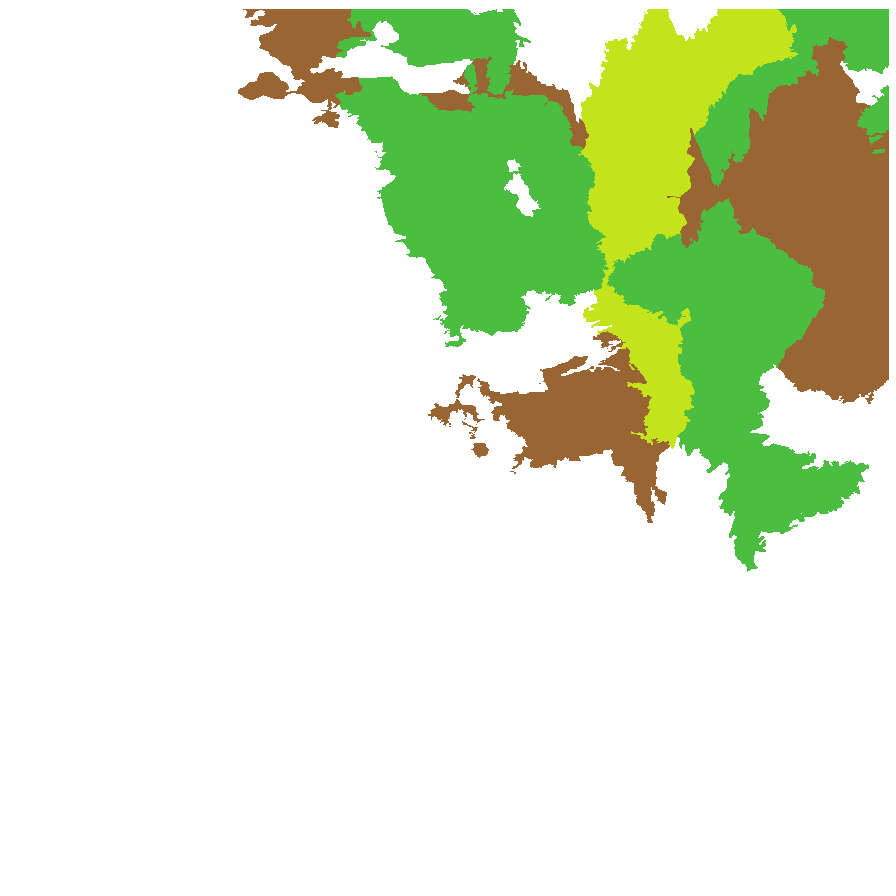
Botanical art
Prior names
Helichrysum podolepidium
Chrysocephalum podolepidium
Etymology
Anemocarpa from the Greek 'anema' meaning without a thread and 'carpos' meaning fruit; referring to the absence of hairs on the achenes. Podolepidium from the Greek 'podos' meaning a foot and 'lepis' meaning a scale.
Distribution and status
Found in the north-western part in South Australia, growing in open low arid shrub communities on sandy sometimes rocky soil and on gibber plain often with underlying clay. Also found in the Northern Territory, Queensland and New South Wales. Native. Common in South Australia. Common in the other states.
Herbarium regions: North Western, Lake Eyre, Gairdner-Torrens, Flinders Ranges, Eastern
NRM regions: Alinytjara Wilurara, South Australian Arid Lands
AVH map: SA distribution map (external link)
Plant description
Bushy perennial herb to 20 cm high and up to 30 cm with white-woolly branches. Leaves spathulate to 90 mm long and 25 mm wide, grey-green and felty. Rayless yellow daisy flower on a long stalk. Flowering between September and November. Fruits are large daisy head containing numerous seeds. Seeds are oblong, pale brown achenes to 2 mm long and less than 0.5 mm wide with feathery pappus to 8 mm long. Seed embryo type is spatulate fully developed.
Seed collection and propagation
Collect seeds between August and December. Collect heads that are large, fat, drying off and turning brown. Place the heads in a tray for a week to dry. Then rub the heads gently with your hands to dislodge the seeds. Viable seeds will be long fat and hard. Store the seeds with a desiccant such as dried silica beads or dry rice, in an air tight container in a cool and dry place. From one collection, the seed viability was very low, close to 0%. This maybe due to timing of seed collection (too early before seed is fully developed. Seeds are non-dormant, viable seed should germinate readily.
| Location | No. of seeds (weight grams) | Number of plants | Date collected | Collection number Collection location | Date stored | % Viability | Storage temperature |
|---|---|---|---|---|---|---|---|
| BGA MSB | 32,000 (16.65 g) 32,000 (16.65 g) | 2 | 20-Aug-2010 | DJD1103 Flinders Ranges | 1-Jan-2012 | 70% | -18°C |
Number of plants: This is the number of plants from which the seeds were collected.
Collection location: The Herbarium of South Australia's region name.
% Viability: Percentage of filled healthy seeds determined by a cut test or x-ray.